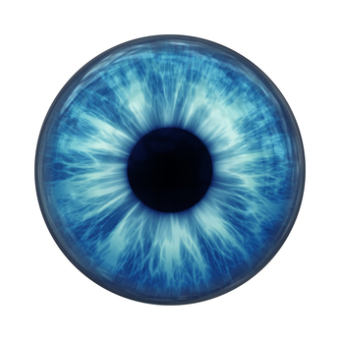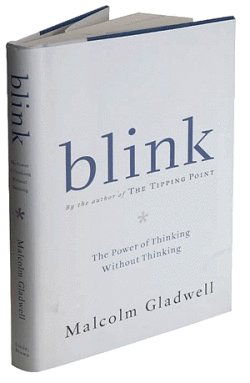Becoming A Rockstar Doctor: Part 2
 Make Great Decisions in the Blink of An Eye
Make Great Decisions in the Blink of An Eye
Imagine you are in a minor car accident or fall on a mountain bike. You are roughed up a bit with bumps and bruises but seem to be alright. Suddenly, you cannot catch your breath. This quickly gets worse and your friends are beginning to panic. They call 911 and by the time you arrive at the Emergency Department things are looking pretty dicey, in fact, you lose conciseness and begin de-saturating rapidly. Your friends are now freaking out, there is a frenzy of commotion all around. As you are wheeled into the hospital, nurses and EMTs furiously work to start IV lines and ready the crash cart.
Then, through the blizzard of activity walks a figure with a calm and collected but focused look. There is a moment of contemplation and suddenly a large needle appears out of nowhere and is slammed into your chest. This is followed by a loud hissing sound and your breathing begins to slow and stabilize. The pressure in you chest subsides as does the tension in the room.
Blink: The Power of Thinking Without Thinking
Blink is a fascinating look at the psychology and science of snap judgment and rapid decision making. This book is well suited for any future physician or surgeon, as our training is largely about producing doctors with great clinical discernment, and sometimes this is required in an instant. 
Great Doctors Become Experts at "Thin-Slicing"
You may have already experienced the phenomena personally. Last time you took a test came across a question that you where unsure about but just felt the answer was D. Another classic is walking out of a test and feeling like you failed because you felt like you where guessing on every single question, then it turns out you did fine. As we progress in medical school we may get to experience this on wards as well. No doubt you have seen an attending instantly and effortlessly produce a diagnosis that was not even on your radar. This is because they have become experts at something called thin-slicing.
The Nuts and Bolts of Thin-slicing
The term Thin-slicing is used in psychology and philosophy to describe a person's ability to instantly make important and complex decisions based on very narrow experience or "thin slices". In Blink, Gladwell gives many examples of this phenomenon. One is about a firefighter in Cleveland who responded to a routine call with his men. They arrived to find a kitchen behind a one-story house was quickly becoming engulfed in flames.
After breaking down the door, the firefighters began dousing the fire with water. Strangely, the fire did not stop. The fire lieutenant recalls suddenly thinking to himself, "There's something wrong here," immediately he ordered his men out of the room. Moments later, the floor where they had just standing collapsed. When asked how he knew to get out, the fire lieutenant had no idea. He just had this "feeling" and thought it was ESP or a premonition.
What actually happened?
The fire was not in the kitchen but in the basement and if he had not been able to make this split second call, the results could have been disastrous. In fact, taking time to reassess and make a more informed decision could have proven fatal for the group.
Gaining A Magic Mind: Harnessing the Power of Thin-slicing
Some critics of Blink make the point that one should not minimize critical thinking and not discount it's importance in these blink-like judgments. In reality, it seems doctors do this on a spectrum. Critical thinking has a huge role in the way doctors decide how to solve the difficult problems encountered on a day to day basis. However we are looking at how to develop a "good gut" and gaining the ability to decide on an action in a split second or when our tests and exams do not offer the answer. These type of calls certainly make up a minority in the practice of medicine but they are often under pressured and difficult conditions.
There are some problems that are not solve by systematic and deliberate thinking to come to an answer. Here is a great example from the book.
A man and his son are in a serious car accident. The father is killed, and the son is rushed to the emergency room. Upon arrival the doctor looks at the child and gasps, "This child is my son!" Who is the doctor?
Of course this puzzle relies on insight, not a math equation, to come to the answer you need to mentally leap past your unconscious assumption that all doctors are men. Then the answer is clear...this is the boy's mother.
Blink does offer suggestions for those who want to take rapid cognition seriously.
The Value of Insight
There are times when insight is clearly the best way to solve the problem. As future doctors we must find the balance between deliberate and instinctive thinking when it comes to treating patients. Much of our training stresses the deliberate thinking process and tends to down play the role of insight thinking. This is why it is important for doctors to realize the value of insight and learn to improve this skill.
There is Structure to the Madness
Blink gives examples of fast paced sports like basket ball or imporv comics to show how the participants are rapidly making complex decisions and instantaneously reacting to their surroundings. What allows them to do this? Learning the structure of the game, knowing each person's role and practicing this as a team.
We see this played out in the hospital. If you notice the contrast between a code run in the ICU and one run on a basic floor you will see this principle in action. In an ICU setting the nurses, respiratory therapists, physicians have practice and can execute, and even improvise as needed, with relative ease. However this is not the case everywhere and things can get a out of hand much quicker with a group of people who have not trained together.
Becoming an Expert
Once you become an expert in something, it becomes much easier to deconstruct this type of rapid thinking. Experts can look behind the curtain of spontaneous unconscious thought and decode what lies behind what appers to be a snap judgement.
That takes us back to our scenario at the beginning, the calm doctor can take one look at you almost breathless and in a matter of seconds have the confidence to stick a huge needle into your chest. To to most people this may seem like a moment of awe and clarvoiance. But once you learn to take one look at a patient and see brusing on the chest (possible broken ribs), trachypnea, desaturations on pulse oximetry, and tracheal deviation the answer instantly leaps into your head, tension pneumothorax! A few seconds is all it takes, and nothing else is needed but a nice big needle.
 Blink,
Blink,  Malcolm Gladwell,
Malcolm Gladwell,  Medical School,
Medical School,  Rockstar Doctor,
Rockstar Doctor,  Success
Success 


"I wouldn't do it twice, but I would not 'not' do it once."
- ZDoggMD